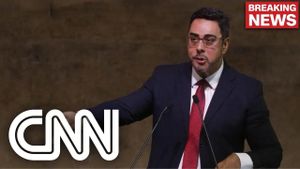NEW DELHI: On February 1, 2025, Union Finance Minister Smt Nirmala Sitharaman unveiled the first full Union Budget of Prime Minister Shri Narendra Modi’s third term. This landmark budget focuses on tax changes and targeted economic reforms intended to alleviate the financial burden on the middle class and stimulate growth across several sectors.
Among the most notable announcements is the exemption from income tax for individuals earning up to Rs 12 lakh annually, with salaried taxpayers benefitting from the exemption threshold of Rs 12.75 lakh including the standard deduction. This initiative is seen as a significant boost to disposable income, fostering greater household consumption, savings, and investment. The Finance Minister emphasized, "This will empower the middle class, end their struggle, and pave the way for more substantial economic contributions."
The new tax structure will leave more money in the pockets of the middle class, with the revised tax slabs as follows: earnings from Rs 0 to 4 lakh remain tax-free, Rs 4 to 8 lakh taxed at 5%, Rs 8 to 12 lakh at 10%, and so on. The top rate of 30% now applies to incomes exceeding Rs 24 lakh.
Alongside income tax reforms, Sitharaman highlighted changes to customs duties across various sectors. A complete exemption from Basic Customs Duty (BCD) was announced for 36 life-saving drugs and medicines, providing welcome relief to cancer patients and those suffering from rare diseases. An additional six life-saving medicines will benefit from concessional customs duty of 5%.
To boost the domestic manufacture of electric vehicle (EV) batteries and mobile phone batteries, the Finance Minister proposed 35 new capital goods for EV manufacturing and 28 for mobile phone battery production. "This will promote local manufacturing, creating jobs and sustaining economic growth," she noted.
The textile sector will also see significant changes, with more types of shuttle-less looms added to the list of fully exempted machinery, aimed at revamping the production of technical textile products. The BCD on knitted fabrics has been revised to encourage production and accessibility.
For the seafood industry, the BCD on frozen fish paste has dropped from 30% to 5%, and the BCD on fish hydrolysate used for making shrimp feeds will also be significantly reduced, aiding local producers as they navigate international competition. Sitharaman assured, "These measures will reinforce our commitment to domestic production and sustainability."
Other pivotal proposals include tax relief for senior citizens and enhanced TDS thresholds. The limit for tax deduction on interest for senior citizens has been doubled from Rs 50,000 to Rs 1 lakh. The government also aims to streamline compliance by reducing the number of TDS rates and thresholds.
Local businesses have expressed optimism about the Budget. Talking to IANS, local entrepreneurs shared their thoughts on the measures introduced. Fashion designer Manjusha Shrivastava stated, "This Budget is promising for the handicraft sector, which is expected to thrive with the new tax regulations." Meanwhile, Vikas Kumar, another middle-class representative, hailed the tax exemption on incomes up to Rs 12 lakh as "a bumper deal," highlighting the relief it provides to working families.
Although inflation remains on the minds of many, including hotel association president Subramanyam Harda, he believes the changes will alleviate some financial strains on families. Commenting on the budget's wider impacts, Harda mentioned, "The reduced tax slabs bode well for the everyday taxpayer, especially for salaried individuals. We’re hoping this renewed purchasing power leads to growth across the hospitality sector too."
The Budget has been characterized as reformative and ambitious by several economic commentators. "This Budget marks one of the most significant phases of reform, with the proposed changes likely to propel the Indian economy to new heights," said legal expert Sushil Kumar.
The introduction of new funds to support startups, especially aimed at women entrepreneurs and those from disadvantaged backgrounds, received positive feedback from the business community. The additional Rs 10,000 crore contribution aims to bolster government support for entrepreneurship, promoting economic inclusivity and empowerment.
Looking forward, the establishment of the new Income Tax Bill, set for introduction next week, is anticipated to bring clarity and simplicity to the tax code, with Sitharaman asserting, "This will build trust between taxpayers and the government by ensuring transparency and accountability."
Finally, the emphasis on funding for expansions at prestigious institutions like the Indian Institutes of Technology (IITs) promises to yield long-term benefits, with increased capacity for education and innovation.
Overall, the Union Budget 2025 is viewed as a heartfelt response to the middle class's needs and aspirations, aiming to streamline tax structures, promote employment, and facilitate economic growth across diverse sectors, making it a watershed moment for India’s economic future.



